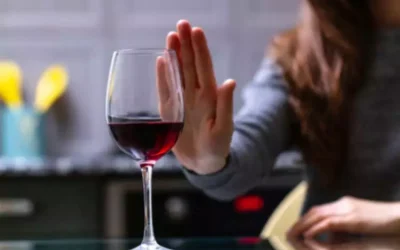And they can’t be better accounted for by another mental health condition, like a phobia or PTSD. A panic attack causes sudden, temporary feelings of fear and strong physical reactions in response to ordinary, nonthreatening situations. When you’re having a panic attack, you may does alcohol cause panic attacks sweat a lot, have difficulty breathing and feel like your heart’s racing. Nature or ‘green therapy’ has a proven effect on anxiety levels and calming panic attacks. If severe anxiety or panic attacks are a problem for you, make sure you get proper nutrition and exercise.
- If you experience an alcohol-induced panic attack, it is important to take the right steps to calm yourself as soon as possible.
- But if you’ve had recurrent, unexpected panic attacks and spent long periods in constant fear of another attack, you may have a condition called panic disorder.
- To get started and learn about your treatment options, take our free online assessment, to see if Talkiatry is right for you and get matched with a psychiatrist.
- Standard delivery of RPT also may require a pivotal adaptation when applied to clients with comorbid anxiety disorders.
Alcohol and anxiety: can booze trigger panic attacks?
- Alcohol can affect several dozen neurotransmitters and receptors, making understanding its mechanism of action in the brain complicated.
- While alcohol might feel like a solution in the short term, this drinking behavior comes with many problems.
- This article will explain what heart attack symptoms can occur in teenagers and the causes of sudden cardiac arrest.
- The reported rates of self-medication in clinical samples of people with both types of disorders have ranged from 50 to 97 percent, with the highest rates among people with phobias (Bibb and Chambless 1986; Smail et al. 1984; Thomas et al. 2003; Turner et al. 1986).
- Here you can find useful links and phone numbers to get the support you need.
The two often create a cycle that’s hard to break, whereby the onset of one is a trigger for the other. More serious causes, such as infections of the heart, may also cause chest pain. The researchers hypothesized that a critical function of the dmPFC in the observer mice may be to balance the need to minimize harm (i.e., freezing) with the need to fulfill other essential survival functions (e.g., assessing risk or comforting others). As anyone who’s consumed alcohol knows, ethanol can directly influence brain function. Ethanol is classified as a “depressant” because it has a generally slowing effect on brain activity through activation of γ-aminobutyric acid (GABA) pathways. Our short survey takes just a few minutes to complete and helps us to keep improving our healthy lifestyle articles.

Alcohol and Your Brain: The Latest Scientific Insights
Panic attack symptoms can also resemble symptoms of other serious health problems, such as a heart attack, so it’s important to get evaluated by your primary care provider if you aren’t sure what’s causing your symptoms. Panic attacks have many variations, but symptoms usually peak within minutes. If you or a loved one uses alcohol to cope with anxiety, especially during socializing, it may lead to being dependent on alcohol, especially in social settings. In fact, drinking can change the chemistry of the brain in a way that actually makes anxiety worse.
Anxiety problems in the absence of alcohol misuse
A DSM-IV diagnosis of alcohol dependence required meeting at least three of seven criteria.12 The first two criteria were physical—development of tolerance to alcohol and development of withdrawal symptoms. The remaining five criteria were behavioral signs of dependence, such as spending a great deal of time obtaining, drinking, or recovering from the effects of alcohol and drinking more alcohol, or for longer, than intended. Left untreated, panic attacks and panic disorder can affect almost every area of your life. You may be so afraid of having more panic attacks that you live in a constant state of fear, ruining your quality of life. According to the Anxiety and Depression Association of America (ADAA), it isn’t unusual for people with social anxiety disorder and other anxiety disorders to use alcohol to try to calm anxiousness and ease related symptoms.
Why You Shouldn’t Rely on Alcohol During Times of Stress – Health Essentials
Why You Shouldn’t Rely on Alcohol During Times of Stress.
Posted: Wed, 15 Apr 2020 07:00:00 GMT [source]
Anyone can experience anxiety—or “hangxiety”—after drinking, even if you aren’t dealing with alcohol dependence. However, if you find yourself frequently experiencing anxiety and regret after drinking, particularly after heavy drinking, it may be a sign of a more serious problem. To understand exactly why this happens, chemically, it’s important to understand the role of GABA—a neurotransmitter—in the brain and body. Studies have found that heavy drinkers have increased cortisol levels due to alcohol’s effects on the body.
- Over time, excessive use of alcohol can cause strain on your body that manifests as acute or chronic health conditions that can include liver and cardiovascular disease.
- In this opponent process model, the term “addiction” refers to the neurobiological and motivational changes that occur as a consequence of chronic substance use.
- These effects are particularly visible the day after drinking when the hangover begins to set in.
- A heavy influx of alcohol can lead to your body blocking its own GABA receptors in an attempt to re-establish this equilibrium.
- More serious causes, such as infections of the heart, may also cause chest pain.
- That way when they do have a panic attack they will automatically know what to do.